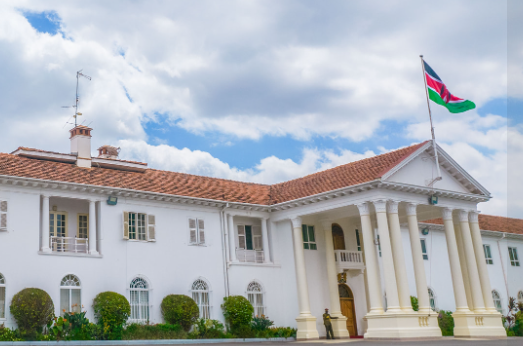Cabinet Secretaries, Principal Secretaries, and other public servants signed new performance contracts at State House on Tuesday, in an event convened by President William Ruto.
- The contracts will specify targets that each official is expected to meet by the end of every financial year to promote accountability and enhance collective responsibility.
- The Cabinet Secretaries will receive a scorecard on the list of the achievements made and unfulfilled targets; with performers feted and failures sanctioned.
- The performance contracts will enable the government to manage projects, streamline ministerial operations, prevent confusion and clashing responsibilities, and ease the nation’s budgeting process.
“I look forward to working with the ministers and the PSs in making sure that we deliver on the commitments and the mandates that have been signed here,” President Ruto said.
All Cabinet Secretaries (except ICT’s Margaret Nyambura who missed the event) signed the performance contracts including the Prime Cabinet CS Musalia Mudavadi, who signed three contracts based on the three positions under his domain. These include the Foreign Affairs ministry, the ministry of Interior left vacant after Kithure Kindiki was inaugurated as the new Deputy President, and the ministry of Gender, Culture, and Arts whose nominee – Stella Lang’at – failed the parliamentary vetting process.
The contracts were validated by the Deputy Chief of Staff in the Executive Office of the President, Eliud Owalo, and the Secretary to the Cabinet, Mercy Wanjau. The targets will align with the government’s key economic pinpoints including Agriculture, MSMEs, Affordable Housing, Universal Healthcare Coverage (UHC), and the Creative Economy.
“These performance contracts are not mere bureaucratic rituals or ceremonial formalities. They represent firm and solemn commitments to implement the inclusive and transformative goals of our plan,” he added.
The signing of the performance contracts is intended to align the government with the agenda it set on the campaign trail in 2022. The Bottom Up economic agenda remains elusive, as Ruto’s regime faces sharp criticism for falling short of their promise to deliver economic recovery.
Earlier this month, State House announced that it was planning to enlist a new batch of economic experts in different fields to resuscitate the Bottom Up agenda. This is bound to increase the cost of State House advisors to over a billion shillings annually, disparaging the government’s own commitment to austerity. Many of the government’s initiatives have been scuttled by a revenue crunch, fierce opposition from the public, and incurable misalignment with the citizens’ priorities.
The collapse of the Finance Bill 2024 in June this year was a clarion call to the government that displeasure with the state’s performance was prevalent. President Ruto restructured his cabinet, introducing members of the opposition party into key ministerial posts. However, that did little to quell discontent as some of the ministers are taking the same path as their predecessors.
Over the past few days, the clergy has heightened its criticism of the government’s failures, citing that it has failed in its mandate to uphold human rights and constitutional integrity, as well as ignoring the plight of Kenyans on the looming tax hikes and the bungled implementation of the Social Health Insurance Fund (SHIF).
The President is optimistic that he has organised a functional government that will accomplish his vision and turn around the country’s fortunes. He has sneered at his critics, accusing them of gleefully wishing for the nation’s downfall.
“I promise you, we will confound the naysayers. This country will not fail, it will succeed. The enemies of Kenya will be put to shame,” Ruto said during the event.
Ruto boasted that his government had taken bold steps in implementing initiatives his successors had failed in, dismissing NHIF as a defunct scheme that did not address the glaring lapses in the health sector. He insisted that SHA will outpace NHIF in the long run, despite the immense operational challenges it is facing at the moment.




